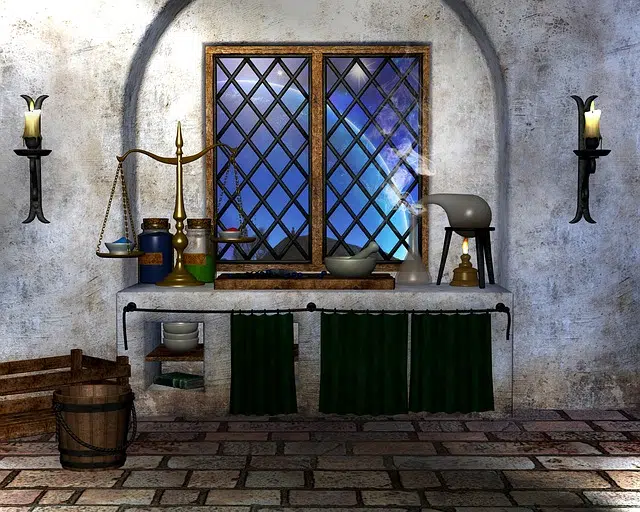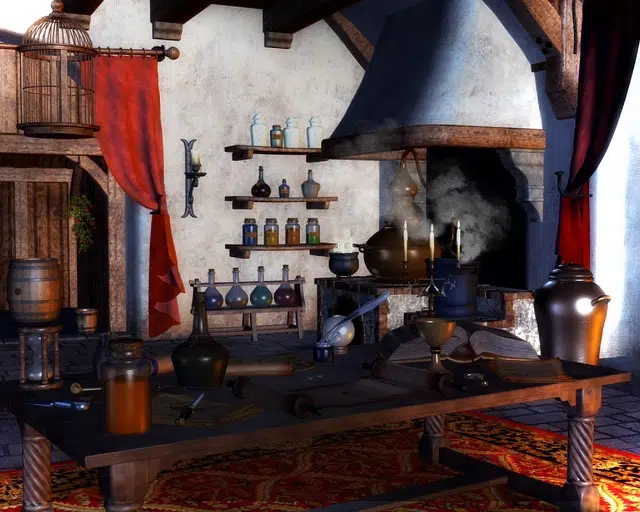
Iatrochemistry is considered to be a historical stage of chemistry.
The concept of iatrochemistry refers to a historical stage of chemistry as a science, when it began to separate itself from alchemy and was linked to medicine . Iatrochemistry aimed to explain various physiological and pathological processes of the human organism, considering that health depended on the balance of supposed body fluids.
Paracelsus (1493-1541) is noted as the father of iatrochemistry. In the 16th century , the postulates of this scientist were considered avant-garde and, although today they are already archaic, they are still valued as precursors of current knowledge of biochemistry and pharmacology , for example.
Iatrochemistry, between alchemy and chemistry
Iatrochemistry is usually pointed out as a link or a transition between alchemy (associated with esotericism) and chemistry. In other words: it would not have been possible to achieve a scientific development of chemistry without iatrochemistry and, before that, without alchemy.
It was Paracelsus who maintained that physiological and pathological processes were caused by chemical reactions . Based on this theory , many iatrochemists resorted to combining various substances to prepare remedies.
Iatrochemistry, in this framework, resorted to reductionism and tried to explain all the phenomena of life from chemistry. Continuing with this reasoning, he maintained that pathologies could be resolved chemically.

Iatrochemistry succeeded alchemy and preceded the consolidation of chemistry as a science.
A discipline that became obsolete
In short, it can be stated that iatrochemistry became obsolete when the medical practices of the modern era began to be forged.
Despite this issue, its historical contributions and relevance between the mid- 16th century and the middle of the 17th century continue to be valued, especially in the region of Flanders .
Pioneers of iatrochemistry
As in any other field of knowledge, iatrochemistry would not have existed if it had not been for the different people who dedicated their lives to its study and development. For this reason, below we will review the biographical data of the most significant for this science that was lost in time.
We can start with Jan Baptista van Helmont , born in 1577 and known as the first to represent iatrochemistry. It is known that he made public the great respect he had for Paracelsus and in fact shared with him his way of understanding metaphysical elements. He maintained that water and ferment were the two most important elements of any body.
Jan Baptista also pointed out that the individual was made up of three spheres: the archeus (a gray area between the material and spiritual worlds), the soul and the spirit. The first could be altered due to the action of "harmful agents", which consequently affected the ferment and this was related to diseases.
In 1614, Franz de le Boë was born, a German scientist whose commitment to iatrochemistry places him even above Jan Baptista, whose concepts he refined to the point of, for example, leaving behind the idea of archeus . He did support fermentation, a process that he considered essential in every organism and from which acids and alkalis were released. These two substances were of great importance to him: our health depended on their balance; If this was disturbed, illness arose.
A contemporary of Franz de le Boë, the Italian Baglivi , who criticized his predecessors for being "speculative and indecisive" in contrast to Greek medicine, much more linked to reason. Robert Boyle , an Irishman who also dedicated himself to physics and theology, formulated the law that bears his name and is considered the first to develop modern chemistry, although its roots were inevitably found in iatrochemistry.
One of his works, The Skeptical Chemist , proposes the existence of atoms as the basis of matter and that these move and can collide, triggering the various phenomena that we notice through observation.
